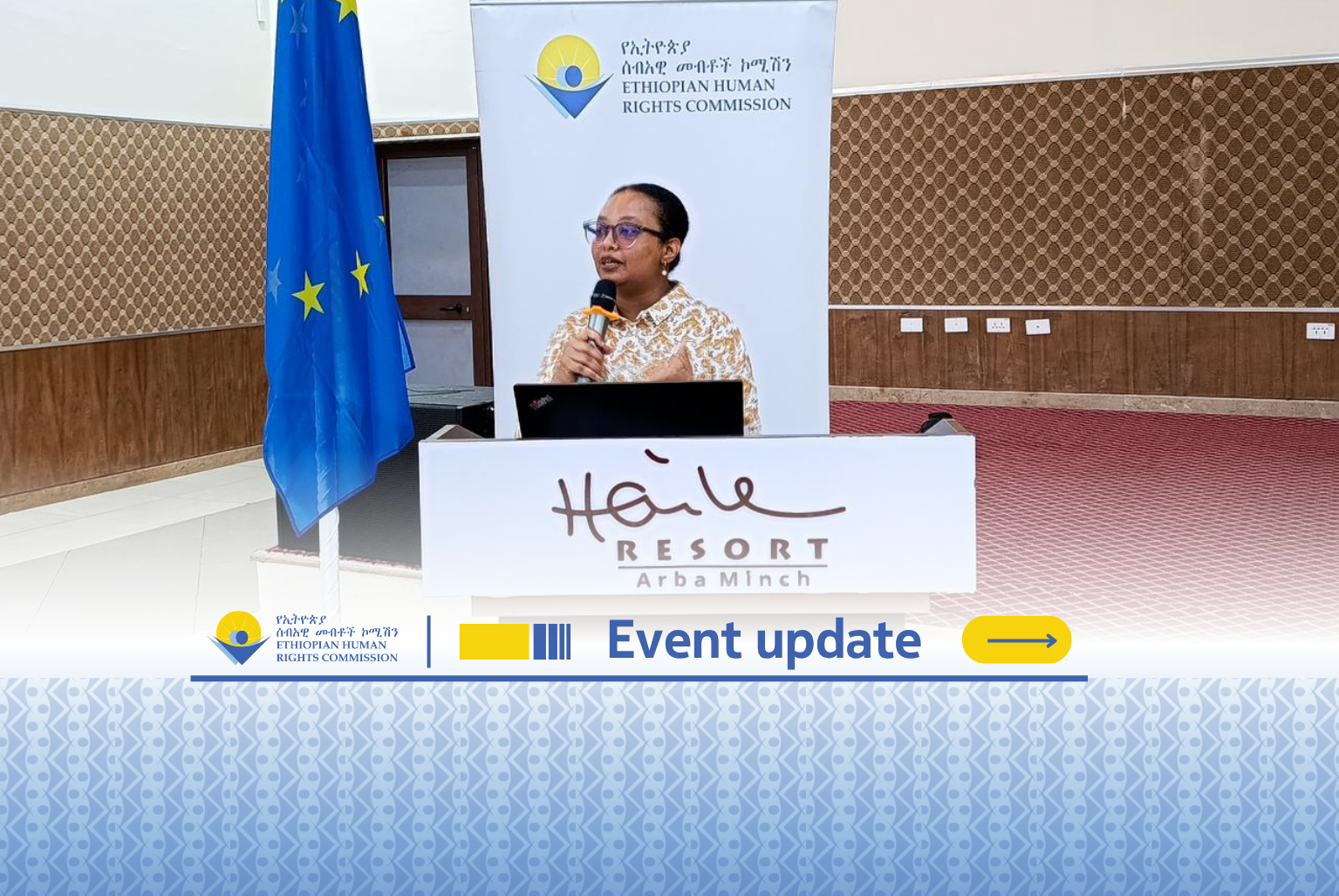The Ethiopian Human Rights Commission (EHRC), in collaboration with the United Nations Office of the High Commissioner for Human Rights – East Africa Regional Office (OHCHR-EARO), held a consultative workshop with victims of human rights violations from South Ethiopia region on Transitional Justice (TJ) on October 14, 2025, in Arba Minch. Aimed at raising awareness on Ethiopia’s TJ process and the critical role of victims, the consultation included experience sharing by victims’ associations from Afar, Amhara, Gambella and Somali regions on their ongoing efforts.
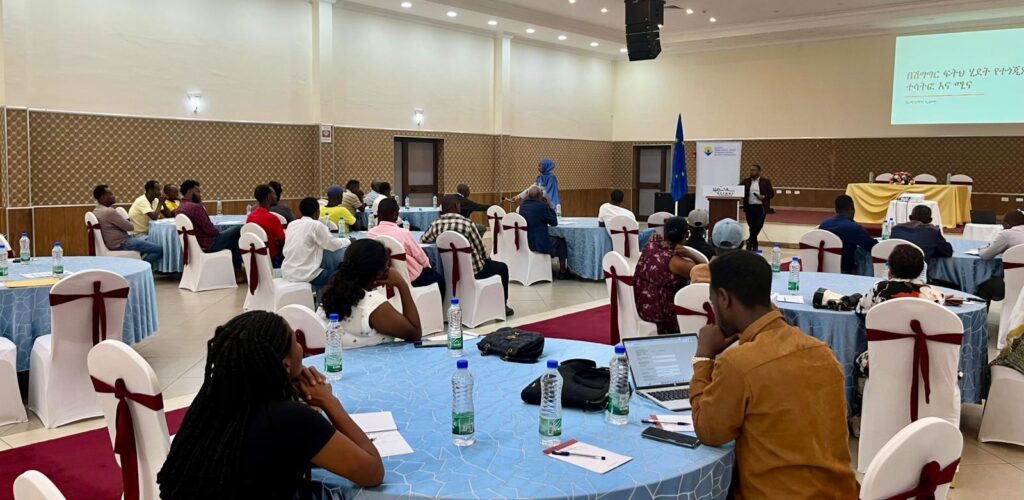
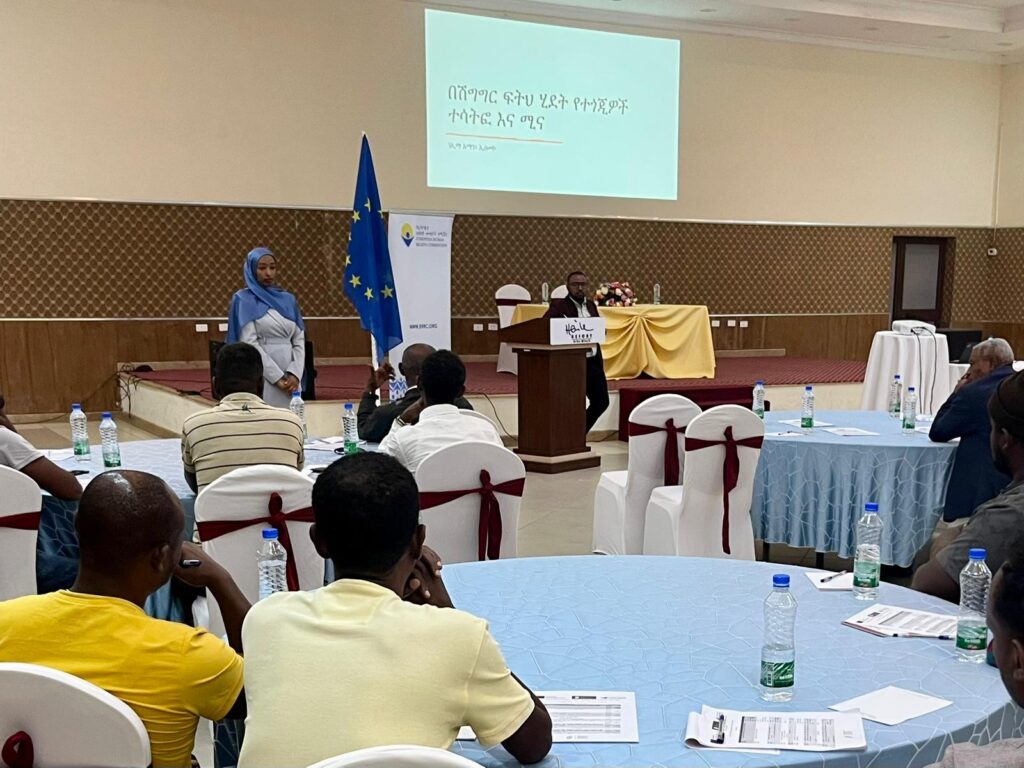
The session covered the concept of TJ and the role of victims under Ethiopia’s TJ framework, followed by presentations on comparative international experiences and emerging national initiatives, illustrating how victims and survivors can organize and contribute to human rights-compliant TJ processes.
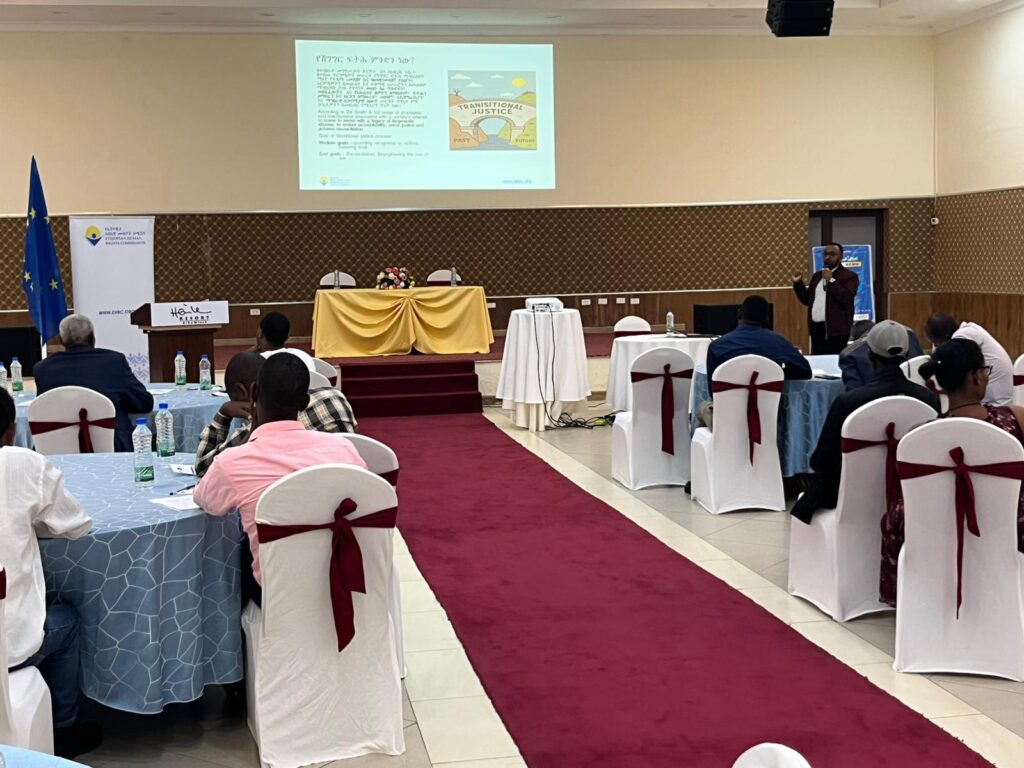
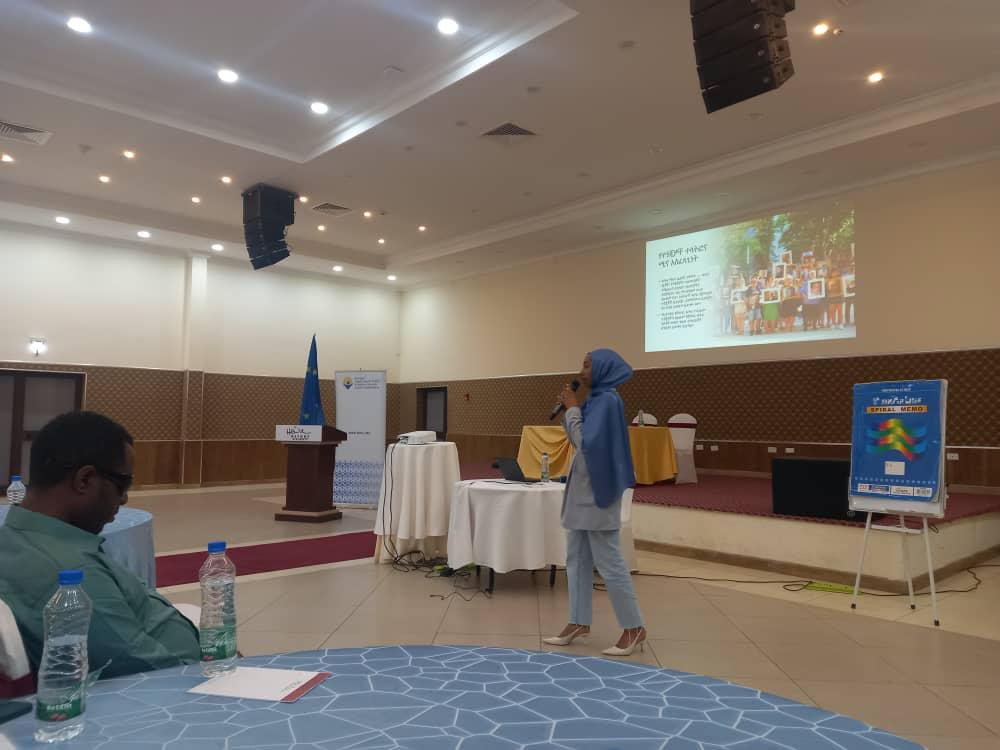
During focus group discussions, participants identified both challenges and opportunities related to victims’ participation in justice processes in the South Ethiopia region. They noted that victims’ efforts to organize often face challenges in building trust and fostering cooperation among different actors, emphasizing the need for continuous awareness-raising and capacity-building initiatives for all relevant stakeholders. Participants also highlighted a growing sense of solidarity among individual victims and called for sustained support from EHRC, OHCHR-EARO and local civil society organisations, particularly in the areas of capacity building and technical guidance, to empower victims to play a meaningful role in the TJ process.
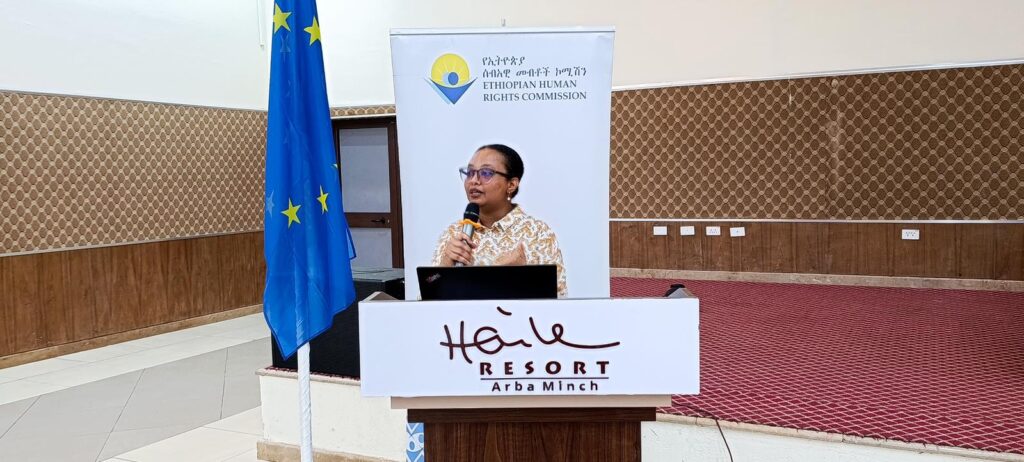
Kalkidan Dereje, EHRC Chief of Staff, reaffirmed EHRC’s strong commitment to advancing an inclusive, victim-centred and human rights-compliant TJ process. She underscored that the meaningful participation of victims and vulnerable groups is indispensable, noting that ensuring victims’ voices are heard is not only vital for inclusion but also a prerequisite for a fair and credible process.
